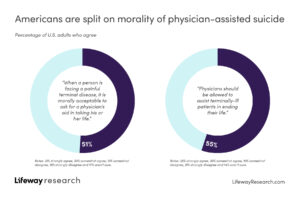
LAKE FOREST, Calif. (BP)–Many churches act as though spiritual growth is automatic once a person is born again. They operate with no organized plan for following up new believers and no comprehensive strategy for developing members to maturity. They leave it all to chance.
They assume that Christians automatically will grow to maturity if they attend church services. All we need to do is just encourage people to show up at meetings, they think, and the job will get done.
Obviously, this isn’t true. Spiritual growth does not just happen once you are saved, even if you attend services regularly. Churches are filled with people who’ve attended for their entire lives yet they are still spiritual babies. An assimilated member is not the same as a mature member.
Spiritual growth is not automatic with the passing of time. The writer of Hebrews sadly noted, “… though by this time you ought to be teachers, you need someone to teach you the elementary truths of God’s word all over again” (Hebrews 5:12). Millions of Christians have grown older without ever growing up.
The truth is that spiritual growth is intentional. It requires a commitment to grow. A person must want to grow, decide to grow and make an effort to grow. Discipleship begins with a decision. It doesn’t have to be a complex decision, but it does have to be sincere.
When the disciples decided to follow Christ, they certainly didn’t understand all of the implications of their decision. They simply expressed a desire to follow Him. Jesus took that simple but sincere decision and built on it.
Philippians 2:12-13 says, “… continue to work out your salvation with fear and trembling, for it is God who works in you to will and to act according to his good purpose.”
Notice that it says “work out” – not “work on” – your salvation. There is nothing you can add to what Christ did for your salvation. The Apostle Paul is talking about spiritual growth in this passage to people who are already saved. The important thing to note is that God has a part in our growth but so do we. We must make an intentional effort to grow.
We become whatever we are committed to — without a commitment to grow, any growth that occurs will be circumstantial, rather than intentional. Spiritual growth is too important to be left to circumstance. It needs to be intentional, not incidental.
In my book “The Purpose Driven Church” (chapter 6), I point out that every church is defined by what it is committed to. The same is true for individual believers. Our commitments define us. Just as a great commitment to the Great Commandment and the Great Commission will grow a great church, I believe it is also the way to grow a great Christian.
Spiritual growth that leads to maturity begins with the kind of commitment described in Romans 6:13: “… give yourselves completely to God – every part of you – for you are back from death and you want to be tools in the hands of God, to be used for his good purposes.”
Some of us hesitate to commit ourselves to developing an intentional plan of growth for our members because we believe spiritual growth is a personal and private matter. Rather than interfere, we choose to allow each person to develop in his own way at his own rate.
This is an American aberration from the truth. The idolatry of individualism in our culture has influenced even the way we think about spiritual growth. So much of the teaching on spiritual formation is self-centered and self-focused without any reference to our relationship to other Christians. This is completely unbiblical and ignores much of the New Testament.
The truth is that Christians need relationships in order to grow. We don’t grow in isolation from others. We develop in the context of fellowship. Over and over again in the New Testament we find this basic truth: Believers need relationships with each other to grow!
Hebrews 10:24-25 says, “Let us consider how we may spur one another on toward love and good deeds. Let us not give up meeting together, as some are in the habit of doing, but let us encourage one another….” God intends for us to grow up in a family.
Relationships are the “glue” that keeps people connected to your church. But relationships play an even more important role in moving people to maturity. They are absolutely essential for spiritual growth.
According to the New Testament, fellowship is not optional for a Christian. It is mandatory! Christians who are not connected in loving relationships with other believers are disobeying all the “one another” commands given in God’s Word.
The Apostle John tells us the proof that we are walking in the light is that we have fellowship with each other (1 John 1:7). If you’re not having regular fellowship with other believers, you seriously should question whether you are really walking in the light. Trying to walk in the light without fellowship with other believers is a futile activity.
John goes even further to suggest that we ought to question whether we really are saved if we don’t love other believers. “We know that we have passed from death to life, because we love our brothers. Anyone who does not love remains in death” (1 John 3:14).
The quality of your relationship to Christ can be seen in the quality of your relationship to other believers. “For anyone who does not love his brother, whom he has seen, cannot love God, whom he has not seen” (1 John 4:20). Notice that John says “cannot.”
It is impossible to love God if you don’t love His children.
–30–
Rick Warren is pastor of Saddleback Valley Community Church in Lake Forest, Calif. Join with Saddleback this fall in 40 Days of Purpose. For more information, call 1-800-SADDLEBACK or visit www.PurposeDriven.com.












